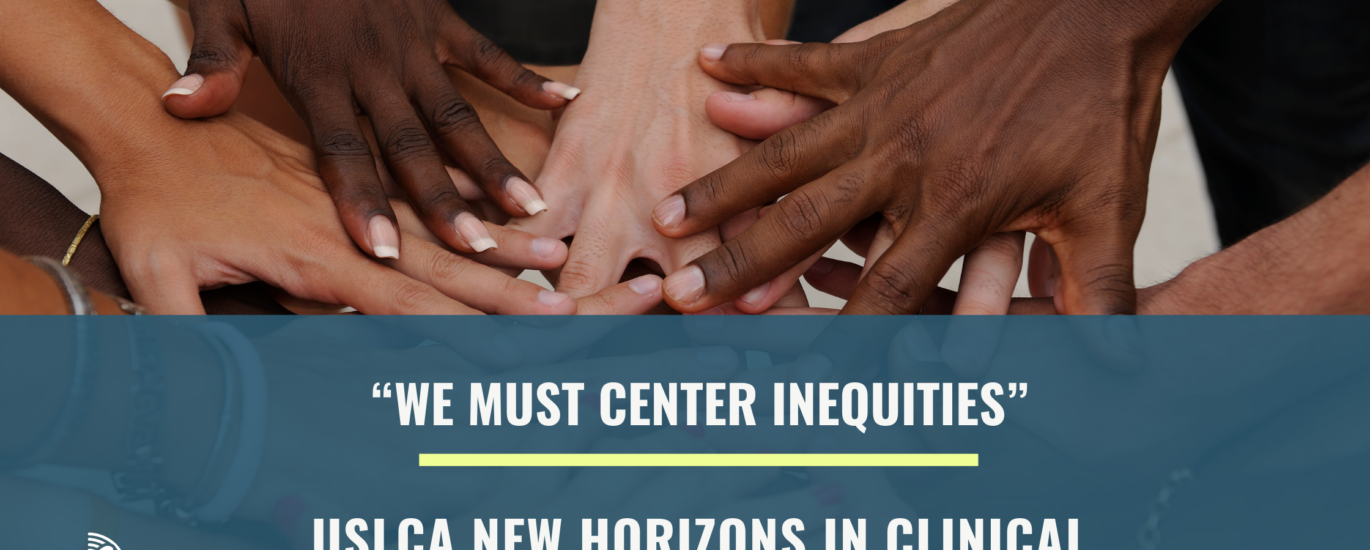
I am a self-confessed conference fanatic. I have no current need for CERPs, as I’m due to recertify by exam in 2021. And in the event that IBLCE changes the requirement and allows recertification by CERPs for every cycle instead of every other cycle (as they absolutely should), I’ve already accumulated more than enough CERPs to make that happen. There’s always something new happening in research, deeper clinical skills to master, and more ways to communicate effectively with my clients. I don’t think I’ll ever stop wanting to learn more so I can provide the best possible care to the families I serve.
Planning my conference agenda for the 2019 USLCA conference required some hard decisions. I wanted to do everything while also leaving myself space to prepare for my own session, “Repairing the Leaks in the Boat: HIPAA Risk Assessment and the Lactation Workflow.”
I knew for sure that I wanted to hear Big Letdown author Kimberly Seals Allers speak, and as I put the pieces of my scheduling puzzle together I realized that I had a unique opportunity to spend almost every session on both Friday and Saturday listening to people of color teach, educate, and lead on equity and diversity. Yes, please!
So while you might be wishing for a recap of what Dr. Thomas Hale had to say about marijuana and CBD during lactation (short answer: weed loves fat), this conference was not about the clinical for me. It was about examining my own white privilege, not turning away from the deadly reality of being black or brown in our white supremacist society, and about believing that positive change can happen when we “center inequities,” as Kimberly Seals Allers said in her plenary address at the conference opening.
“We must center inequities.”
Kimberly Seals Allers
Seals Allers’ talk was called America’s Healthcare System and the Future of Breastfeeding, and throughout her talk she advocated for us to move beyond a focus on a good latch and the elusive “exclusive breastfeeding” metric. The energy in the room was electric, especially when she said:
“Breastfeeding is not a one-time decision. It needs follow-up and continued support.”
Kimberly Seals Allers
Could anything about our work be more true? She reminded us over and over that when breastfeeding does not work, it is not because that individual failed. It’s because the system failed that individual.
“Breastfeeding is a reproductive right.”
Kimberly Seals Allers
Yet while this truth is critical for the institutional and policy changes that need to happen, it reminds me so strongly of what is most challenging about private practice. How do we provide the kind of follow up care our families desperately need when it’s so hard for us to get fairly compensated?
The system is failing us, too. Insurance companies are preventing our out-of-network clients from getting reimbursed, and in-network lactation consultants face time-consuming and costly hurdles in order to get paid appropriately. We have social media influencers disparaging the work we do, and even our best family leave policies still leave a lot to be desired. When we’re sitting in the room with a parent who is broken, defeated, worried, scared, and just plain exhausted, how can we leave her behind?
Seals Allers explored these tensions even more in her three-hour session called “Leveraging the Power of Narrative Communication to Improve Maternal and Infant Health Outcomes.” She spoke straight to my heart as someone who loves my families and hates how they are treated. She believes that story, not studies, hold the true power to bring about structural and societal change.
“Separate the act from the experience.”
Kimberly Seals Allers
Breastfeeding exists within the breastfeeding parent’s own lived experience, and cannot be separated from their circumstances. Our clients deserve more than the paltry crumbs our systems provide them. Rather than turn their breastfeeding struggles inward, and feeling guilty because they feel they have failed at something they tried so hard to choose, our clients can turn their energy outward at the real enemies who are actively blocking them from enjoying their biological prerogative and reproductive right to feed their babies at their breast.
But wait, there’s more!
“The Importance of Equity and Humility in the First Food Movement” presented by Felisha Brooks-Floyd and Stacy Davis from NAPPLSC, started with a historical exploration of the racist policies throughout the 19thand 20thcenturies that created the privilege gap preventing black and brown families from accessing the so-called “American Dream.”
Davis and Floyd designated our room a “brave space,” which was as scary as it sounded. It was overwhelming at times to be confronted with how much I’ve benefited from white supremacy, and to be asked to do more than just feel bad about it. If I want to be the ally I aspire to be, then I have to be creative and proactive in coming up with ways to spend the privilege I didn’t do anything to deserve in order to see my black and brown colleagues achieve power. That’s the only way that we will ever eradicate the despicable disparities in mortality rates for mothers and infants of color.
What matters is the manner in which we act on what we know; whether we interact in a sensitive manner to patients and families, which leads to upholding their rights to be treated with dignity and respect.
Felisha Brooks-Floyd and Stacy Davic, NAPPLSC
One specific way that we can effect positive change in health outcomes for families of color is to have more lactation consultants of color, and we were treated with an amazing model of how this is happening in Los Angeles by Jadah Parks Chatterjee’s presentation “Promoting Diversity Among Lactation Professionals to Increase Breastfeeding Support for Local Families.”
BreastfeedLA’s model is one that can be brought to other cities; anyone interested can and should contact BreastfeedLA directly. There are only 2.2 IBCLCs for every 1000 births in the US, and our profession is still predominantly white. As that changes, so will health outcomes across all populations.
“Breastfeeding and the Latinx Community” by Diana Derige, DrPH, only scratched the surface of the many different cultures and nationalities that fall under this umbrella. I wish she had been given much more time. During the Q&A time, I shared my own struggle as a private practitioner: making a connection and communicating warmth when there is a language or cultural barrier. How can I do better? One of the other session participants had a great suggestion that was so obvious and therefore brilliant: use surveys! Ask my clients that very question, and let them know that their honest answer will help me improve my practices for the families that come after them. The essence of humility is being willing to elevate someone else above yourself. I absolutely believe that empowering families by taking ourselves off of the pedestal of “expert” is necessary for improving health outcomes among families who are being marginalized because they are immigrants who speak Spanish.
“Black women have always been and will always be the leaders to address healthcare disparities facing blacks women.”
Felisha Brooks-Floyd
The session that will probably stay with me the longest was facilitated by Kimberly Moore-Salas, called “Don’t tell me what to do: Perspectives from Indigenous Women in Breastfeeding and Parenting.” We were honored to hear directly from three mothers, who shared so openly and honestly about what it has felt like to have their cultural traditions dismissed or even vilified by the medical establishment.
I was moved to tears many times—I never grow tired of hearing mothers talk about their love for their babies. The most powerful moment for me was when one mother described her life in the “city,” when they are living in white society compared to life at “home,” when she is with her own people and can enjoy the freedoms and joys of being in a true community. We are not meant to raise our children alone.
Nor are we meant to do this work alone. And that might be the main reason I love conferences—for the opportunity to sit with other people who love babies and parents as much as I do. We laugh, we cry, we have cocktails, and we dream big because we know that we can change the world one baby at a time.
Equity, Antiracism, and Inclusivity in Private Practice (7.5 CERPs)






